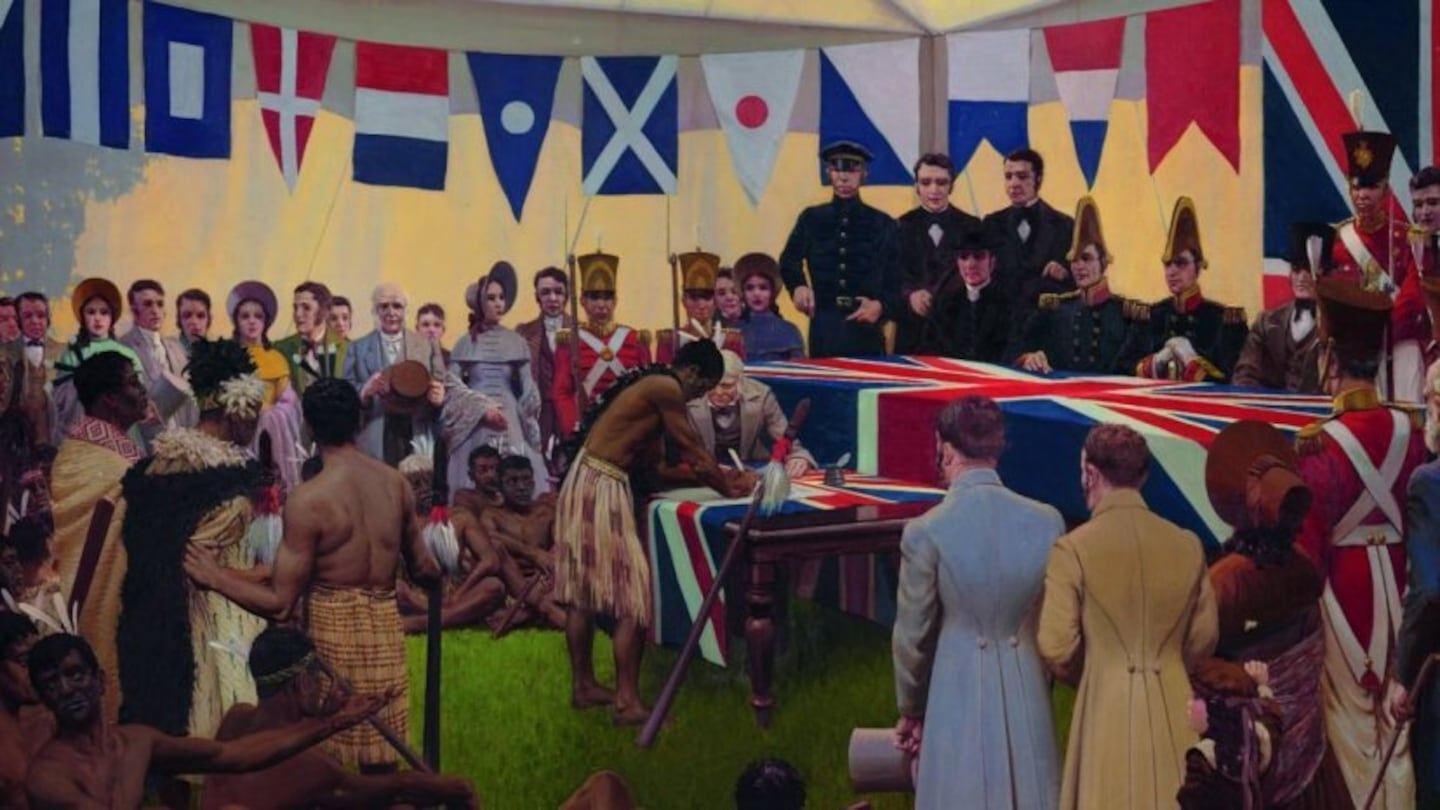The Signing of the Treaty of Waitangi 1938 oil on canvas by Marcus King. Photo / Alexander Turnbull Library
Hoping we'd somehow dodge the typical overheated race-baiting in the lead-up to the election? There's always 2026.
Today's knife (scalpel?) fight comes in the form of politicians taking jabs on whether Māori and Pasifika should be prioritised on surgical wait lists.
This policy by the way appears to have been going since February without incident.
Somehow today though, partisan media and political spin doctors (the worst kind of doctors), have elected to land a few points in the lead-up to October's election.
Here are four facts about why today's debate should've never existed, and why Māori waiting list prioritisation should've happened decades ago.
4: Health outcomes
Māori experience poorer health outcomes than non-Māori, for no fault of their own.
Māori have higher rates of chronic conditions such as cardiovascular disease, diabetes and respiratory diseases, which may require surgical intervention.
Reasons are varied and, if you're a racist, the reality will probably annoy you. Unlike much of what you've heard on talkback today though, they're real, they're evidence-based, and linked to at the bottom of this page.
Urban-rural divides, socio-economic disparities, genetics, institutional racism and being whakamā after more than a century of colonial rule, are all in the mix.
Prioritising Māori surgery can prevent already sick people from developing more complex conditions, meaning the health system is more available for everyone.
3: Life expectancy
Māori have a lower life expectancy than non-Māori.
Stats NZ says Māori on average live about six years less than non-Māori.
Much of today's talk though was about what is 'fair' and 'equal' in society.
Well, surely if you pay your taxes into government coffers, retire at the same time as everyone else but you are going to die much earlier, you deserve access to your share of healthcare earlier too?
2: Unmet need
Māori face barriers in accessing healthcare services, leading to delays in receiving appropriate treatment according to the ongoing 'Māori Standards of Health' report.
Prioritising Māori for surgery is expected to narrow the gap created by systemic barriers that restrict equal access for Māori.
1: Te Tiriti o Waitangi
The New Zealand government has a commitment to equitable participation in healthcare for Māori through Te Tiriti o Waitangi.
Don't like that? Well te Tiriti, is a legal commitment in Aotearoa.
To think governments on either side of the political isle do this stuff out of the goodness of their hearts may be giving politicians too much credit.
They do this stuff because they're told, not addressing it, would be illegal.
So what of the favouritism and discrimination discussed on talkback and sections of the media and medical fields today?
The fact is, discrimination does exist in the healthcare system of Aotearoa, it has for years, it just seems to favour Pākehā.
Where are the politicians and spin doctors whining about that?


